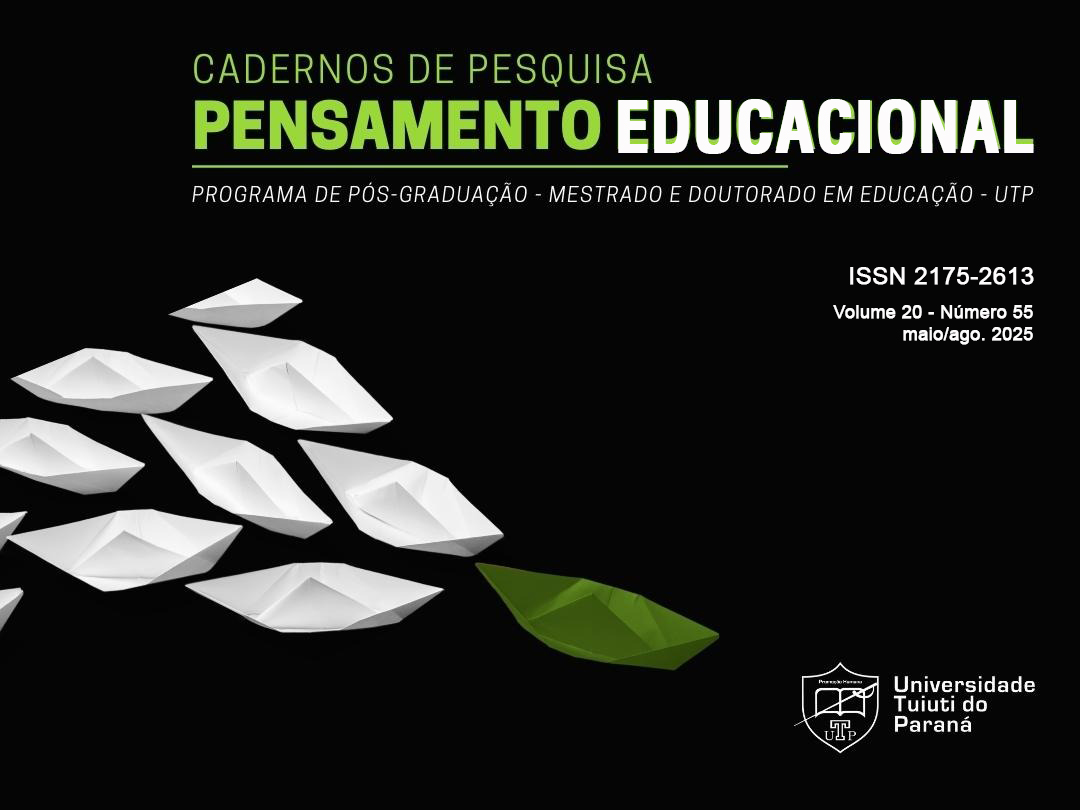(Semi) formação de professores na Resolução CNE/CP nº 04/2024 e o depauperamento do pensar na educação contemporânea
Resumo
Este texto tem como intuito principal desenvolver uma análise crítica sobre as políticas de formação docente na atualidade, particularmente da Resolução CNE/CP n° 04/2024 que instituiu as Diretrizes Curriculares Nacionais para a formação inicial em nível superior de profissionais do magistério da Educação escolar básica. Partiu-se da seguinte questão: qual concepção de formação está presente nessas DCN’s? Na tentativa de responder este questionamento, desenvolveu-se um estudo teórico bibliográfico pautado por pesquisadores que discutem a política nacional de formação de professores em um contexto sociopolítico marcado pela elevada centralização curricular. Parte-se do pressuposto de que as políticas atuais de formação de professores enfatizam uma concepção reducionista e pragmatista do fazer e do pensar pedagógico, desconsiderando-se a formação pautada pela reflexão e pela crítica. Pretende-se argumentar sobre a precarização das políticas de formação docente traduzida em Semiformação (Halbildung). Conclui-se que as novas Diretrizes de formação inicial docente da Educação Básica promovem a formação aligeirada e alinhada à lógica empresarial, portanto, depauperizadoras do pensamento. Como forma de resistência, utilizou-se das elaborações filosóficas adornianas numa tentativa de expor que o indivíduo, expropriado da crítica, é capturado pelas técnicas de instrumentalização do pensamento, portanto, impossibilitadoras da formação (Bildung) e de resistência.
Copyright (c) 2025 Ademir Henrique Manfré

This work is licensed under a Creative Commons Attribution-NonCommercial 4.0 International License.
- Autores mantém os direitos autorais e concedem à revista o direito de primeira publicação, com o trabalho simultaneamente licenciado sob a Licença Creative Commons* que permite o compartilhamento do trabalho com reconhecimento da autoria e publicação inicial nesta revista.
- Autores têm autorização para assumir contratos adicionais separadamente, para distribuição não-exclusiva da versão do trabalho publicada nesta revista (ex.: publicar em repositório institucional ou como capítulo de livro), com reconhecimento de autoria e publicação inicial nesta revista.
- Autores têm permissão e são estimulados a publicar e distribuir seu trabalho online (ex.: em repositórios institucionais ou na sua página pessoal) a qualquer ponto antes ou durante o processo editorial, já que isso pode gerar alterações produtivas, bem como aumentar o impacto e a citação do trabalho publicado (Veja O Efeito do Acesso Livre).
- Esta revista proporciona acesso público a todo o seu conteúdo, uma vez que isso permite uma maior visibilidade e alcance dos artigos e resenhas publicados. Para maiores informações sobre esta abordagem, visite Public Knowledge Project.

*Esta obra está licenciado com uma Licença Creative Commons Atribuição-NãoComercial 4.0 Internacional.


